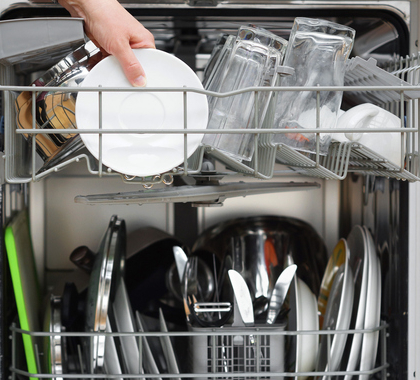Lawmakers in Congress held hearings on energy-efficiency regulations governing consumer appliances proposed by the U.S. Department of Energy (DOE), during which the concern emerged DOE is issuing rules costing consumers more than they would save in energy costs and other factors.
The U.S. House Energy and Commerce Committee’s Energy and Power subcommittee heard testimony in June made by appliance manufacturers and government administrators about DOE’s efficiency regulations. In the hearing memo, the subcommittee wrote, “[T]he Obama administration has promulgated more appliance standards than any previous administration [and has] both amended standards for previously-regulated categories of appliances and first-ever standards for newly-created categories.”
Consumer Demand
Sherzod Abdukadirov, a research fellow with the Mercatus Center at George Mason University, says consumer demand already drives companies to produce efficient home appliances.
“To the degree that more-efficient appliances actually save consumers money on energy costs, that already happens naturally in the market,” Abdukadirov said. “When government steps in, the savings are either trivial or nonexistent. There is no evidence that consumers are not already reacting to energy efficiency, so there is no reason for government to intervene in the market.”
Fuzzy Math
Abdukadirov says DOE regulations may be reaching a point of diminishing returns.
“There is a big question about the calculated savings that are claimed in these efficiency standards,” Abdukadirov said. “In the DOE’s own calculations, some are negligible, like three dollars over 15 years, which is so trivial that it is within the margin of error. Even the slightest mistake in their assumptions would negate the estimated savings.”
David Kreutzer, a senior research fellow at The Heritage Foundation, says government energy-efficiency mandates don’t measure enough variables.
“They never include the fact that your refrigerators won’t last as long, they won’t cool down as fast, and many other things,” Kreutzer said. “Consumers value saving expenses on energy, but they also value saving on initial cost of appliances, reliability, familiarity, convenience, and a zillion other things that it’s not clear the Department of Energy values as they set efficiency standards.”
‘Busybody Capital of the Universe’
Kreutzer says telling consumers what’s best for them, instead of letting them decide, is un-American.
“It is illegitimate when government acts as the busybody capital of the universe and attracts people who want to tell other people what to do,” Kreutzer said. “That is not the way America is set up. People don’t want to be told what to do [or] what to purchase, [and] for good reason, because the government doesn’t know what each consumer values.”
Jen Kuznicki ([email protected]) writes from Hawks, Michigan.




